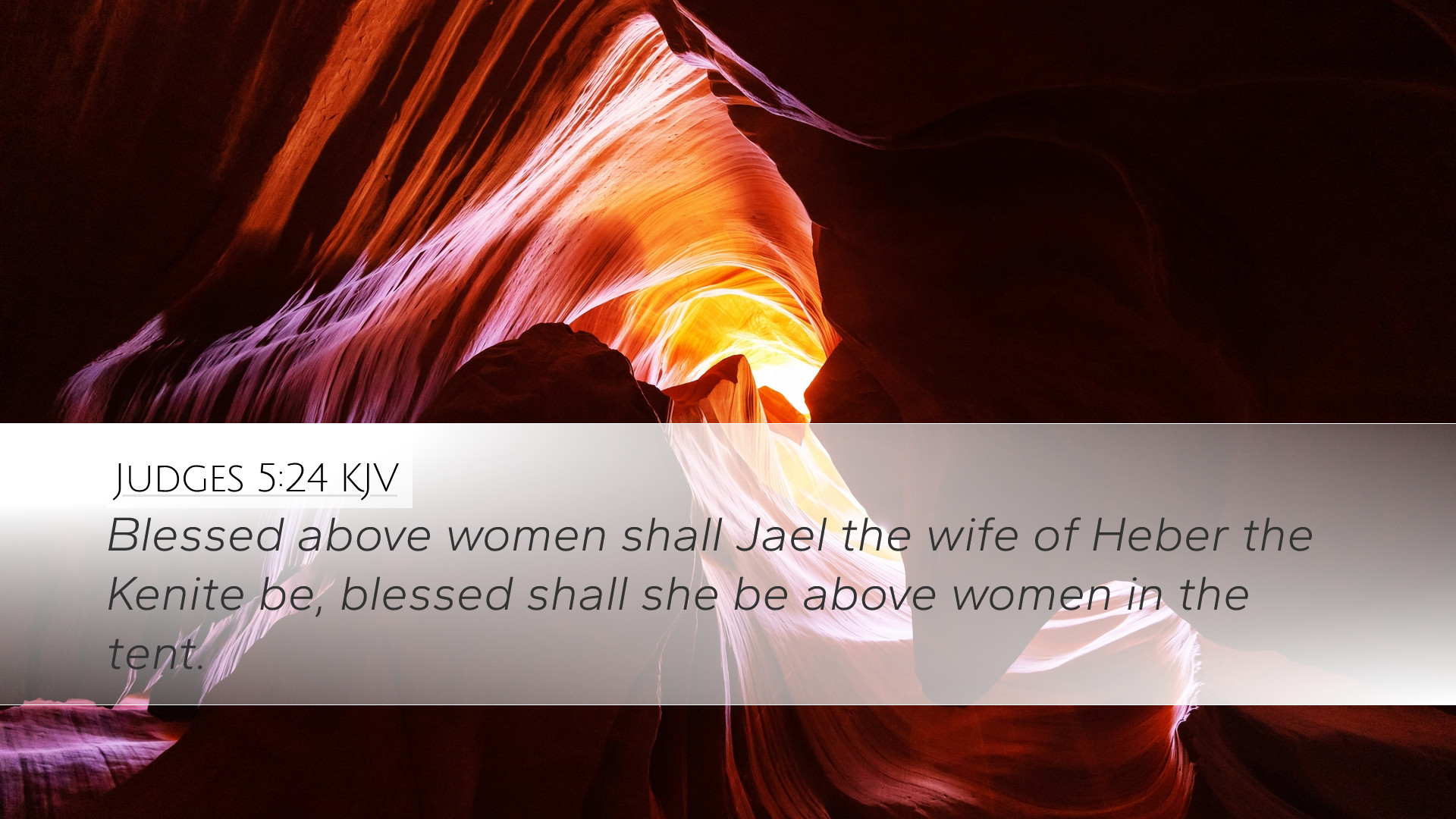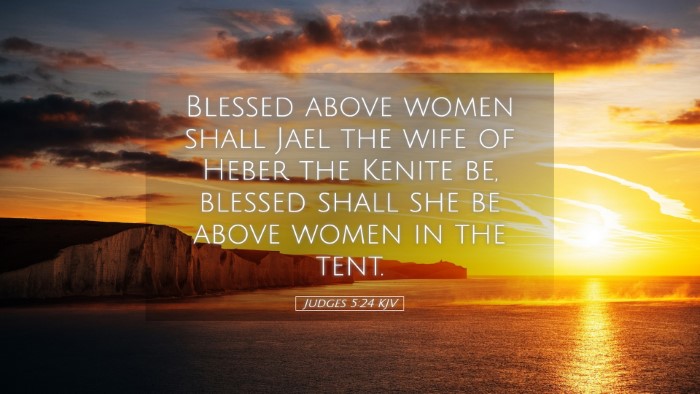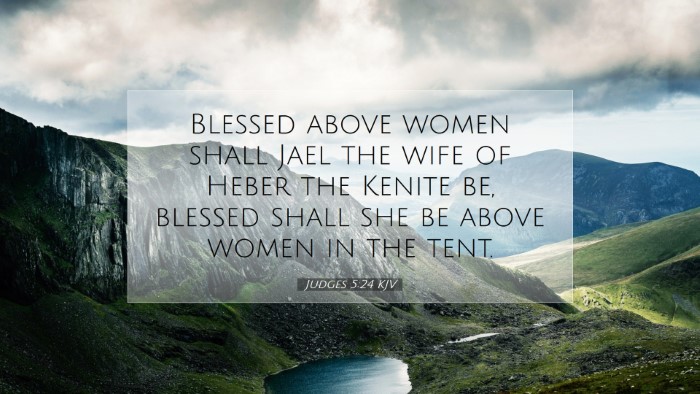Commentary on Judges 5:24
Bible Verse: "Blessed among women shall Jael the wife of Heber the Kenite be: for she dealt foolishly with the tent." (Judges 5:24, KJV)
Introduction
Judges 5:24 comes from the "Song of Deborah," a poetic reflection on the victory over Sisera, the commander of Jabin's army. This verse highlights Jael, the wife of Heber, and her crucial role in the deliverance of Israel. Commentaries from Matthew Henry, Albert Barnes, and Adam Clarke provide profound insights into the significance of Jael’s actions and the broader theological implications for the reader.
Verse Analysis
This verse is set against the backdrop of Israel's oppression by Jabin and the miraculous deliverance through Deborah and Barak. Jael’s action is celebrated, but it invites exploration of her motives, the circumstances of her act, and the ethical considerations surrounding it.
Jael's Role
-
Matthew Henry's Insight: Henry emphasizes Jael's courage and decisive action. He notes that her role was not merely essential but pivotal in the victory of Israel. She "blessed among women" signifies a unique honor, tracing back to the ancient concept of a woman achieving greatness through actions that align with God’s purposes.
-
Albert Barnes' Commentary: Barnes explains that Jael’s actions were an embodiment of divine providence. By killing Sisera, she fulfilled God's judgment against those who oppressed His people. Her act, while seemingly treacherous, was a means of restoration for Israel.
-
Adam Clarke's Perspectives: Clarke views Jael's act with a nuanced lens, highlighting the tension between loyalty to one’s household and loyalty to one’s nation. He posits that Jael's actions were authorized by God, who used her cunning to achieve the deliverance of His people.
Theological Themes
The celebration of Jael's deed illustrates several theological themes that resonate through the scripture and Christian doctrine.
-
The Role of Women in God's Plan: The choice of Jael aligns with the biblical narrative where God often uses women in significant roles to fulfill His purposes, challenging societal norms.
-
Divine Sovereignty: The actions of Jael reflect God’s sovereign will in delivering Israel. This theme is prevalent throughout the book of Judges, showing that God uses unexpected instruments for His glory.
-
Judgment Against Oppression: Jael’s deed also serves as a reminder of God’s judgement against oppressors. Her act of killing Sisera is viewed as a righteous act that leads to vindication for Israel.
Cultural Context
Jael's actions must be understood within the cultural context of the ancient Near East. Hospitality was a sacred duty, and the violation of this act by Jael is significant. Yet, the narrative reveals that divine loyalty transcends human customs when it comes to fulfilling God’s covenant promises.
Conclusion
Judges 5:24 serves not merely as an account of historical events but carries profound spiritual truths that influence today’s readers. Jael's story invites pastoral reflection, ignites theological discussions, and encourages believers to recognize God's hand in unexpected places. Her legacy teaches courage, decisiveness, and the willingness to take a stand for justice—qualities that remain essential for Christians today.
References for Further Study
For a deeper exploration of Judges 5:24, consider engaging with the specified commentaries. Matthew Henry's "Commentary on the Whole Bible," Albert Barnes' "Notes on the Old Testament," and Adam Clarke's "Commentary and Critical Notes" offer detailed insights that enhance understanding of this impactful verse.


